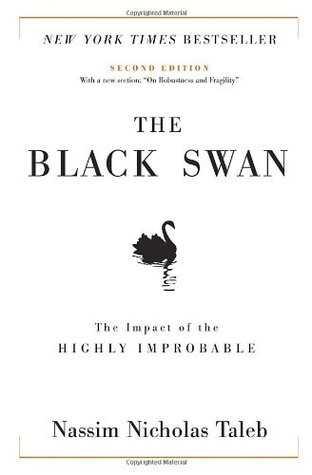Explore the World's Best Ideas
Join today and uncover 100+ curated journeys from 50+ topics. Unlock access to our mobile app with extensive features.
Overview
Black Swans are not inconsequential anomalies, but a significant phenomenon that shapes the very world we live in. Many historical events that drastically impacted our socities and lives were actually Black Swan events. These incluse the 2 world wars, the fall of the Berlin Wall, the 11 Sep 2001 terrorist attacks, the rise of the Internet or the 2019-2020 Covid pandemic.
In all these cases, no one could've predicted the events in advance.
209
3.13K reads
What are Black Swans and why are they important
For thousands of years, it was widely believed that all swans were white. Then in 1697, a Dutch explorer Willem de Vlamingh discovered black swans in Australia, debunking this universal “truth” overnight. The term “Black Swan” has since been used to describe the occurrence of a seemingly-impossible event.
230
2.52K reads
Three lessons:
Taleb identifies 3 key features of Black Swans:
• Rarity: Black Swans are outliers that can’t be reasonably expected to happen based on past events.
• They have a profound impact on our society/world.
• Retrospective predictability: Although the events are unpredictable, humans tend to explain them on hindsight as if they could be perfectly understood and predicted.
238
2.35K reads
Black Swans dramatically change the reality of those, who aren't aware that they're coming
The author calls an even a "Black Swan" if it's unpredictable not because it's random, but because our outlook on what's possible was too narrow. Imagine you’d known about the 9/11 attacks in advance. You wouldn’t have been surprised. In some cases, a Black Swan is only a tragedy for a single person. However, often it affects entire societies. Just think of Copernicus’s discovery that the sun is the center of the universe, not the earth, or when Armstrong set foot on the moon.
203
2K reads
Don’t use your past to explain the future.
Based on the only things we can be certain of – what has happened in our lives in the past – we weave a narrative that makes sense and expect that the future simply must unfold this way. For example, imagine you’re a turkey and for years you live on a farm, get to roam free every day and are fed great food by a farmer. Why would you expect anything to change? But if tomorrow’s Thanksgiving, you’re just 24 hours away from getting killed, stuffed and roasted.
245
1.85K reads
Trying to assess real-world risk like you would in a game can lead you to making the wrong choices.
Another fallacy Taleb describes is called the ludic fallacy. This one explains why we do such bad jobs at getting the right insurance policy, for example.
When faced with the task to assess risk in the real world, we usually try to imagine the risk like a game, where there’s a set of rules and probabilities that we can determine up front, in order to then make the right decision.
211
1.86K reads
2 Types of uncertainty: Extremistan vs. Mediocristan
• In Mediocristan environments, there’s a limit to the amount of randomness or deviation from the average. Inequalities exist, but they’re mild or controlled. Usually, there’re some physical constraints (e.g. height, weight, running speed) which limit the amount of variability. For example, if you add the tallest or heaviest man in history to a sample size of 1,000 people, the outlier won’t make a real difference to the average.
204
1.75K reads
Extremistan
In Extremistan environments, there can be wild randomness and extreme deviations. Typically, there’re no physical constraints and no known upper/lower limits (e.g. knowledge, financial markets, e-book sales, social media “likes”). Thus, the outliers can make a big difference—if you add the net worth of Jeff Bezos or Bill Gates to a group of 1,000 people, it will drastically shift the average.
212
1.81K reads
IDEAS CURATED BY
Curious about different takes? Check out our The Black Swan Summary book page to explore multiple unique summaries written by Deepstash users.
Tanosei hito's ideas are part of this journey:
Learn more about books with this collection
Creating a productive schedule
Avoiding procrastination
Prioritizing tasks effectively
Related collections
Different Perspectives Curated by Others from The Black Swan
Curious about different takes? Check out our book page to explore multiple unique summaries written by Deepstash curators:
1 idea
Godwin Emerald's Key Ideas from The Black Swan
Nassim Nicholas Taleb
1 idea
Godwin Emerald's Key Ideas from The Black Swan
Nassim Nicholas Taleb
2 ideas
Venu Kumar's Key Ideas from The Black Swan
Nassim Nicholas Taleb
Discover Key Ideas from Books on Similar Topics
2 ideas
Zero to One
Blake Masters
17 ideas
Zero to One
Blake Masters, Peter Thiel
10 ideas
Antifragile
Nassim Nicholas Taleb
Read & Learn
20x Faster
without
deepstash
with
deepstash
with
deepstash
Personalized microlearning
—
100+ Learning Journeys
—
Access to 200,000+ ideas
—
Access to the mobile app
—
Unlimited idea saving
—
—
Unlimited history
—
—
Unlimited listening to ideas
—
—
Downloading & offline access
—
—
Supercharge your mind with one idea per day
Enter your email and spend 1 minute every day to learn something new.
I agree to receive email updates
